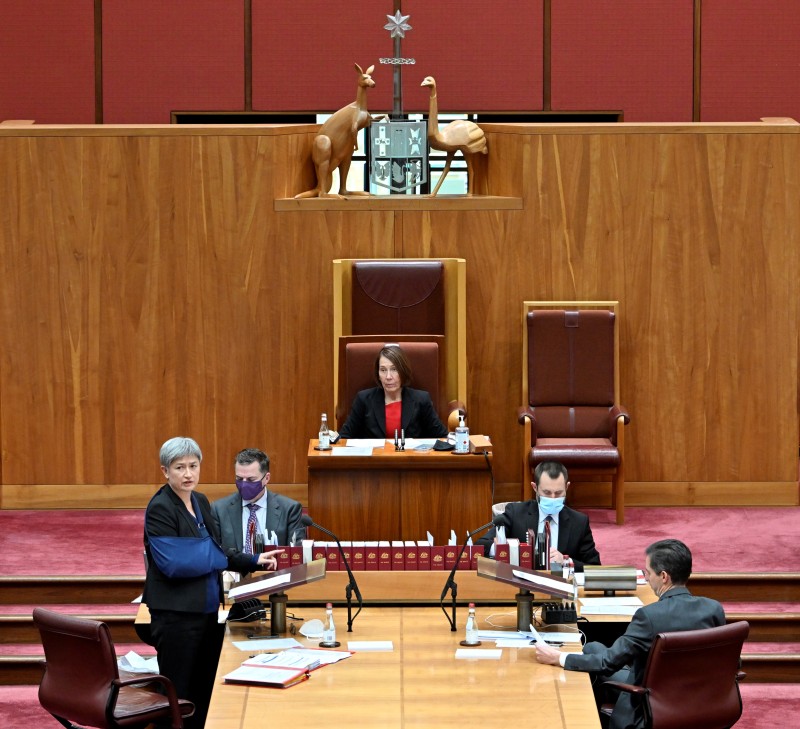What happens if Federal MP's disagree with the Speaker's ruling?
Thanks for your question, Jessica. If a member of parliament disagrees with a ruling made by the Presiding Officer (Speaker in the House of Representatives or the President in the Senate), they can move a motion of dissent – disagreement – to be voted on all the members. Alternatively, a member of parliament can move a motion of no confidence in the Presiding Officer. Motions of these types are very unusual.
If a member of parliament disagrees with something that has happened, they can call a 'point of order'. This means drawing a specific standing order – rule – to the attention of the Presiding Officer (or their deputy), who runs the meeting. The Presiding Officer then has to interpret the point of order and decide if it is valid. The Clerk sometimes assists with this because they have a detailed knowledge of the standing orders.
The President of the Senate

David Foote/DPS Auspic
Description
The President of the Senate sits in a large, red chair on an elevated platform in the Senate. The President is a senator who has been picked to run the meetings in the Senate. The President’s chair faces the U-shaped seating of the other senators. From here, the President can see and hear everything that happens, and everyone in the Senate can see the President.
Permission should be sought from DPS AUSPIC for third-party or commercial uses of this image. To contact DPS AUSPIC email: auspic@aph.gov.au or phone: 02 6277 3342.